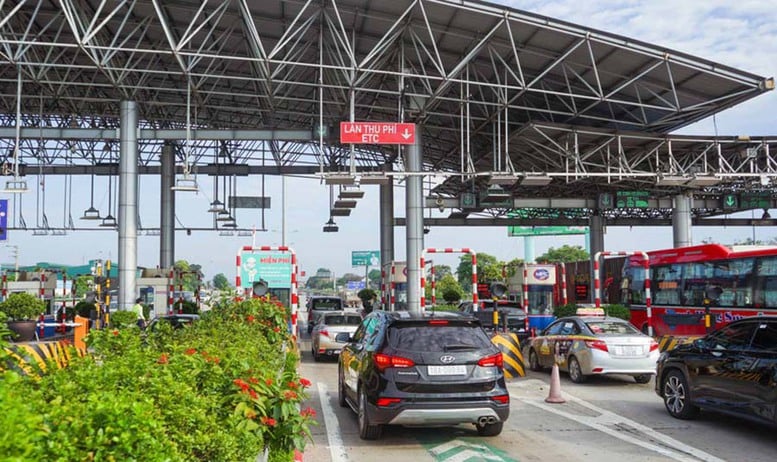
The Ministry of Finance has proposed new regulations on the rates, collection methods, exemptions, management, and use of road usage fees collected per vehicle for automobiles.
The Ministry of Finance stated that, after nearly two years of implementation, Government Decree No. 90/2023/ND-CP dated December 13, 2023, stipulating the rates, collection methods, exemptions, management, and use of road usage fees (Decree 90) has proven effective in managing road usage fee collection through the nationwide vehicle inspection system. Specifically, the following applies:
Decree 90, issued by the central government, has ensured the legal basis for collecting road usage fees for both central and local road transport systems nationwide. The regulations in Decree 90 have facilitated the management of road usage fee collection by addressing several practical shortcomings. The annual increase in road usage fee revenue has significantly contributed to the growth of the state budget, providing a basis for allocating increased funds for the maintenance and upkeep of the national road transport system. 2024 marked the first year that total road usage fee revenue exceeded 14,000 billion VND.
However, to date, during the implementation of Decree 90, several new situations have arisen that are not regulated in the Decree. For example: vehicles temporarily impounded or detained for 30 days or more; vehicles with expired registration that are not participating in road traffic but are still subject to retroactive fee collection; or the procedure for commercial transport vehicles requesting to cease operations does not specify a timeframe for resubmitting the Application for Confirmation of Non-Participation in Road Traffic, which has been certified by the Department of Construction, to the registration authority…
The relevant documents from competent authorities regarding the recovery, liquidation, and auction of confiscated or seized vehicles do not cover the case of vehicles that have been inspected and subsequently sold or liquidated.
Based on the above content, in order to promptly address issues arising during the implementation of Decree 90 and to implement the policy on administrative procedure reform, it is necessary to develop and submit to the Government for promulgation a Decree to replace Decree 90.
The draft Decree consists of 3 Chapters and 11 Articles, specifically:
Chapter I. General Provisions, comprising 5 Articles (Articles 1 to 5), stipulates: Scope of application; Subjects liable for fees and fee payers; Subjects exempt from fees; Cases of fee exemption; and Fee collection organizations.
Chapter II. Specific Regulations, comprising 4 Articles (from Article 6 to Article 9), stipulates: Fee rates; Methods of calculating and paying fees; Management and use of fees; Refund or offsetting of paid fees.
Chapter III. Implementation, consisting of 2 Articles (Articles 10 and 11), stipulates: Implementation organization; Effective date.
Subjects liable for fees and fee payers
According to the draft, the subjects liable for fees and those paying the fees include:
1. Motor vehicles, as regulated by law on road traffic order and safety, that have been issued a vehicle registration certificate, license plate, and a Certificate of Technical Safety and Environmental Protection Inspection (hereinafter referred to as the Inspection Certificate) in accordance with the law, are subject to road usage fees, except for those exempt from fees as stipulated.
No road usage fees are currently collected for automobiles with foreign license plates (including cases where vehicles are issued temporary registration certificates and license plates) that are temporarily imported and re-exported for a limited period as permitted by law, with the authorization of competent authorities.
2. Organizations and individuals who own motor vehicles, or other organizations and individuals to whom the owner has granted the right to possess and use motor vehicles (motor vehicle owners), are subject to road usage fees as stipulated in Clause 1 above and are the payers of road usage fees, except for cases of exemption as prescribed.
The following are exempt from fees.
The draft clearly states that the motor vehicles specified in Clause 1 above are exempt from road usage fees in the following cases:
a) Damaged and unusable according to traffic safety regulations;
b) The vehicle registration certificate and license plate are confiscated, temporarily seized, temporarily detained, or revoked;
c) Vehicles that are temporarily out of service for 30 days or more, including: vehicles that are damaged and require repair; vehicles used for transportation business belonging to enterprises, cooperatives, cooperative unions, household businesses, or individuals engaged in transportation business;
d) Vehicles of enterprises, cooperatives, cooperative unions (enterprises), household businesses, and individual businesses that do not participate in traffic or use roads designated for public traffic (only issued a Certificate of Inspection and not an Inspection Sticker according to the regulations on technical safety and environmental protection inspection of road motor vehicles of the Ministry of Construction ) or vehicles currently participating in traffic and using roads designated for public traffic (already issued a Certificate of Inspection and an Inspection Sticker according to the regulations on technical safety and environmental protection inspection of road motor vehicles of the Ministry of Construction) that transition to not participating in traffic or using roads designated for public traffic, only using them within the following areas: driving test centers; train stations; ports; mining areas; areas for cultivation, production, and processing of agricultural, forestry, and aquatic products; Construction sites (transportation, irrigation, energy), amusement parks, entertainment venues, sports facilities, historical sites, hospitals, schools;
d) Vehicles registered and inspected in Vietnam but operating abroad continuously for 30 days or more;
e) The vehicle has been stolen for a period of 30 days or more.
The draft clearly states that the above regulation does not apply to vehicles of the national defense and police forces.
Free cases
Road usage fees are waived for the following types of vehicles:
1. Ambulance.
2. Fire truck.
3. Vehicles specifically for funeral services, including:
a) Vehicles with specialized structures for funeral services (including hearses, refrigerated trucks for storing and transporting corpses);
b) Vehicles involved in funeral services (including passenger vehicles accompanying the hearse, flower trucks, and vehicles for carrying portraits) are vehicles used solely for funeral services and have vehicle registration certificates in the name of the funeral service provider (including business households and individuals providing funeral services). The funeral service provider must submit a written commitment to the vehicle inspection facility during vehicle inspection stating that these vehicles will only be used for funeral services (specifying the number of vehicles and license plates for each type).
4. Specialized vehicles serving national defense include vehicles with license plates: Red background, white embossed letters and numbers, equipped with specialized equipment for national defense (including: tanker trucks, crane trucks, vehicles transporting armed forces on marches, understood as vehicles carrying 12 or more people, covered transport vehicles with seats installed in the cargo area, control vehicles, military inspection vehicles, specialized vehicles for transporting prisoners, rescue vehicles, satellite communication vehicles, and other specialized vehicles serving national defense).
5. Specialized vehicles of units belonging to the organizational system of the People's Public Security include:
a) Traffic police vehicles have the words "TRAFFIC POLICE" printed on both sides of the vehicle;
b) The 113 police car has the words "POLICE 113" printed on both sides of the vehicle;
c) Mobile police vehicles have the words "MOBILE POLICE" printed on both sides of the vehicle;
d) Transport vehicles equipped with seats in the cargo area used by police officers on duty;
d) Prisoner transport vehicles, rescue vehicles, and other specialized vehicles of the Ministry of Public Security.
e) Special vehicles (satellite communication vehicles, bulletproof vehicles, counter-terrorism and riot control vehicles, and other special vehicles of the Ministry of Public Security).
Readers are invited to view the full draft and provide feedback here.
Source: https://baochinhphu.vn/de-xuat-quy-dinh-moi-ve-muc-thu-su-dung-phi-su-dung-duong-bo-doi-voi-xe-o-to-102250911172340624.htm


![[Photo] Prime Minister Pham Minh Chinh receives Lao Minister of Education and Sports Thongsalith Mangnormek](/_next/image?url=https%3A%2F%2Fvphoto.vietnam.vn%2Fthumb%2F1200x675%2Fvietnam%2Fresource%2FIMAGE%2F2025%2F12%2F16%2F1765876834721_dsc-7519-jpg.webp&w=3840&q=75)
![[Live] 2025 Community Action Awards Gala](/_next/image?url=https%3A%2F%2Fvphoto.vietnam.vn%2Fthumb%2F1200x675%2Fvietnam%2Fresource%2FIMAGE%2F2025%2F12%2F16%2F1765899631650_ndo_tr_z7334013144784-9f9fe10a6d63584c85aff40f2957c250-jpg.webp&w=3840&q=75)

![[Image] Leaked images ahead of the 2025 Community Action Awards gala.](/_next/image?url=https%3A%2F%2Fvphoto.vietnam.vn%2Fthumb%2F1200x675%2Fvietnam%2Fresource%2FIMAGE%2F2025%2F12%2F16%2F1765882828720_ndo_br_thiet-ke-chua-co-ten-45-png.webp&w=3840&q=75)
![[Photo] Prime Minister Pham Minh Chinh receives the Governor of Tochigi Province (Japan)](/_next/image?url=https%3A%2F%2Fvphoto.vietnam.vn%2Fthumb%2F1200x675%2Fvietnam%2Fresource%2FIMAGE%2F2025%2F12%2F16%2F1765892133176_dsc-8082-6425-jpg.webp&w=3840&q=75)
![[Image] The tenacious fighting spirit of Vietnamese women's football](/_next/image?url=https%3A%2F%2Fvphoto.vietnam.vn%2Fthumb%2F1200x675%2Fvietnam%2Fresource%2FIMAGE%2F2025%2F12%2F17%2F1765990260956_ndo_br_4224760955870434771-copy-jpg.webp&w=3840&q=75)



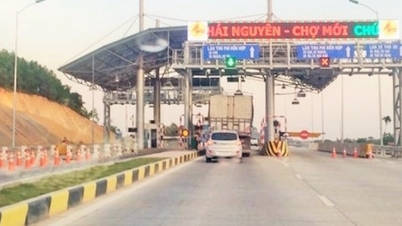



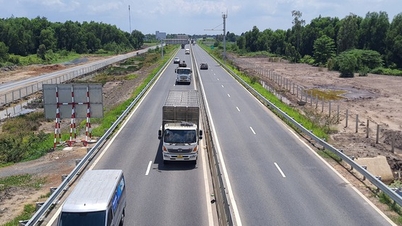
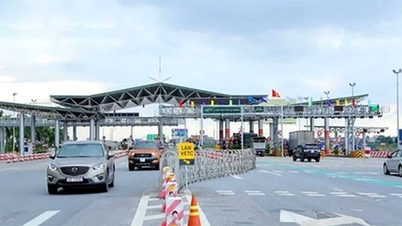




























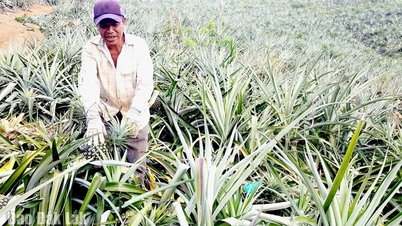




































![[Live] Closing Ceremony and Award Presentation for the "Impressive Vietnam Tourism" Video/Clip Creation Contest 2025](https://vphoto.vietnam.vn/thumb/402x226/vietnam/resource/IMAGE/2025/12/17/1765974650260_z7273498850699-00d2fd6b0972cb39494cfa2559bf85ac-1765959338756946072104-627-0-1338-1138-crop-1765959347256801551121.jpeg)




























Comment (0)